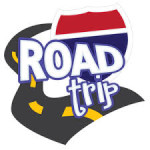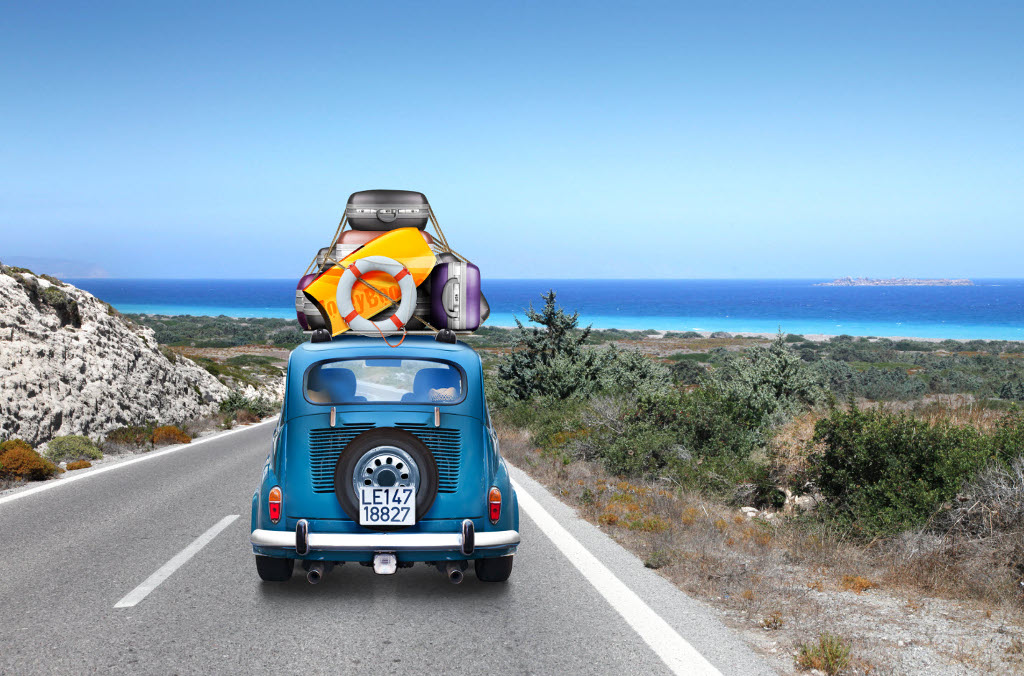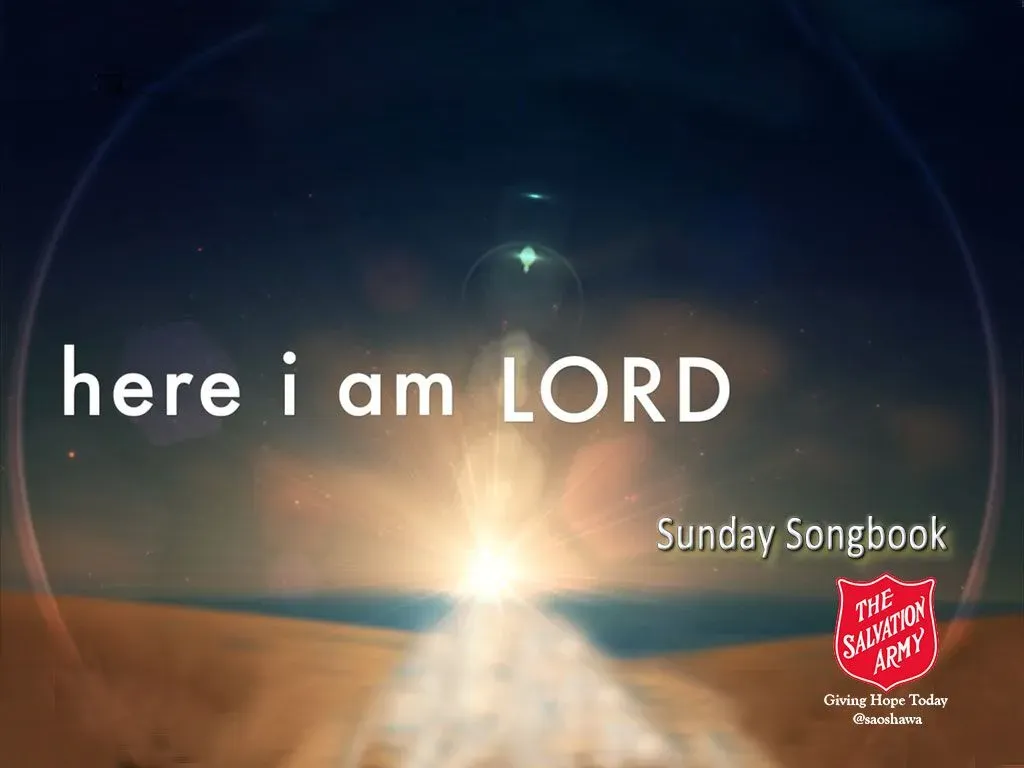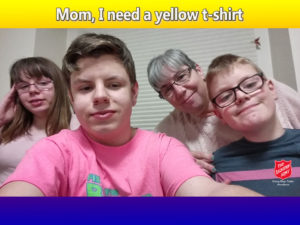Summer is here!
School is out, the kids are free, and the countdown for the long awaited “family vacation” is finally winding down. Some of you will be jetting off to sunny beaches or hopping on trains to visit family. You may even be sailing off into the sunset on a luxury cruise ship. You are blessed people indeed. Why, you ask? You are blessed because you’ve managed to avoid the bane of all family travel, the perpetual thorn in the backside of any summer vacation, the family road trip.
Ah….the family road trip. How the memories, (or nightmares depending on how you look at it) come flooding back. Growing up, the majority of our family vacations involved rather lengthy road trips. When I say lengthy I don’t mean seven or eight hours on the road. I’m talkin’
Fort McMurray, Alberta, to Chance Cove Newfoundland—lengthy. We’d usually set out in the wee hours of the morning. My Dad would convert the backseat of our car into a giant bed, so my brother and I would sleep while he drove through the night. It was pure genius on his part. He could drive all night, make some great progress on the road and have perfect peace and quiet while the rest of us slept.
Waving at “moo cows”
I have to give my parents credit. They did their very best to adequately arm themselves for hours and hours in a vehicle with two young children. This was back in the 80’s, long before ipads, hand-held video games and portable DVD players. Entertaining kids on a road trip actually involved creative planning. My parents’ first line of defense was usually the old favorites, I spy, singing “Down by the Bay”, waving at “moo cows” and trying to get train conductors to blow the whistle as we drove by. Then came the more interesting approaches, one of which involving a search for Chief Fallen Rock. Whenever we drove past a caution sign for “falling rocks” my Dad would tell us to start looking, because the sign actually meant that an old Indian Chief named “Fallen Rock” was in the area, and he needed us to help spot him.
 Mom and Dad’s best boredom buster however, was The Treat Bag. This was their secret weapon, their ace in the hole, no fail, guaranteed to keep them quiet and happy, road trip sanity saver. Every two or three hours, my brother and I were allowed to reach into a giant plastic bag that had been pre-stocked with coloring books, crayons, storybooks on tapes, sticker books, activity pads and anything else that might possibly keep two kids from going stir crazy in a car for hours and hours on end. Whatever we pulled out of that bag kept us happy, quiet and out of each other’s faces until the next “reach” into that bag.
Mom and Dad’s best boredom buster however, was The Treat Bag. This was their secret weapon, their ace in the hole, no fail, guaranteed to keep them quiet and happy, road trip sanity saver. Every two or three hours, my brother and I were allowed to reach into a giant plastic bag that had been pre-stocked with coloring books, crayons, storybooks on tapes, sticker books, activity pads and anything else that might possibly keep two kids from going stir crazy in a car for hours and hours on end. Whatever we pulled out of that bag kept us happy, quiet and out of each other’s faces until the next “reach” into that bag.
Are we THERE YET???”
Despite Mom and Dad’s best efforts, there always came a point when my brother and I would snap. We got along well for the most part, but spending that much time in a confined space, with a younger sibling well trained in the art of aggravation, would push Job himself over the edge. “Mom…he’s on my side of the seat.” “Mom, she’s singing along with the radio.” “Mom, he’s breathing too loud.” “Dad, tell her to stop staring at me.” “Mom…he stinks.” “Are we THERE YET???” “I have to pee REALLY bad.” And then, Mom and Dad would snap and the threats I’m sure every child has heard on a road trip would follow. “Don’t make me come back there!” or “If I have to turn this car around and go all the way back home, I will!” and the one that struck fear in heart of every child, “If I have to pull this car over you will be very sorry.” If I remember correctly, Dad did pull the car over on occasion, and yes, we were usually very sorry.
In spite of all the drama, aggravation and sometimes tears, I still have many happy memories of our family time together on the road. I remember singing songs with my Mom and telling her to “harmonize me” as we sang. When my Mom and brother were asleep, I got to have long chats with my Dad while leaning over his shoulder as he drove. My brother and I would tell knock-knock jokes, play rock-paper-scissors and draw pictures together. We had fun and made the best of our time together.
Apologize profusely
 Our family road trips weren’t all bad. In fact, when we had our children and were planning our first family vacation, my husband and I didn’t think twice about how we’d reach our sunny destination. We packed up the car in the wee hours of the morning, tucked our little ones into the back seat, and headed off to make our own road trip memories. When we reached our destination, the first thing I did was, call my Mom and Dad and apologize profusely.
Our family road trips weren’t all bad. In fact, when we had our children and were planning our first family vacation, my husband and I didn’t think twice about how we’d reach our sunny destination. We packed up the car in the wee hours of the morning, tucked our little ones into the back seat, and headed off to make our own road trip memories. When we reached our destination, the first thing I did was, call my Mom and Dad and apologize profusely.




